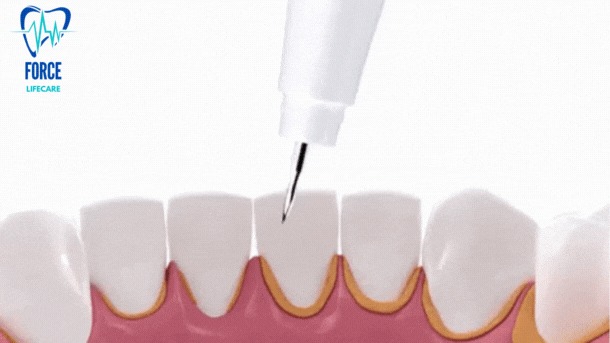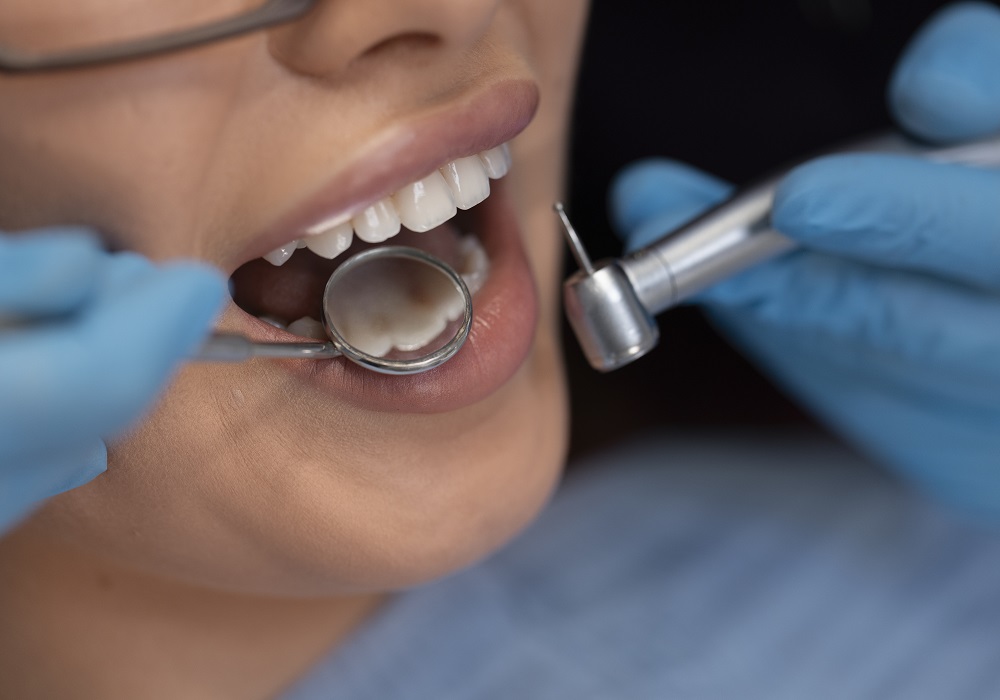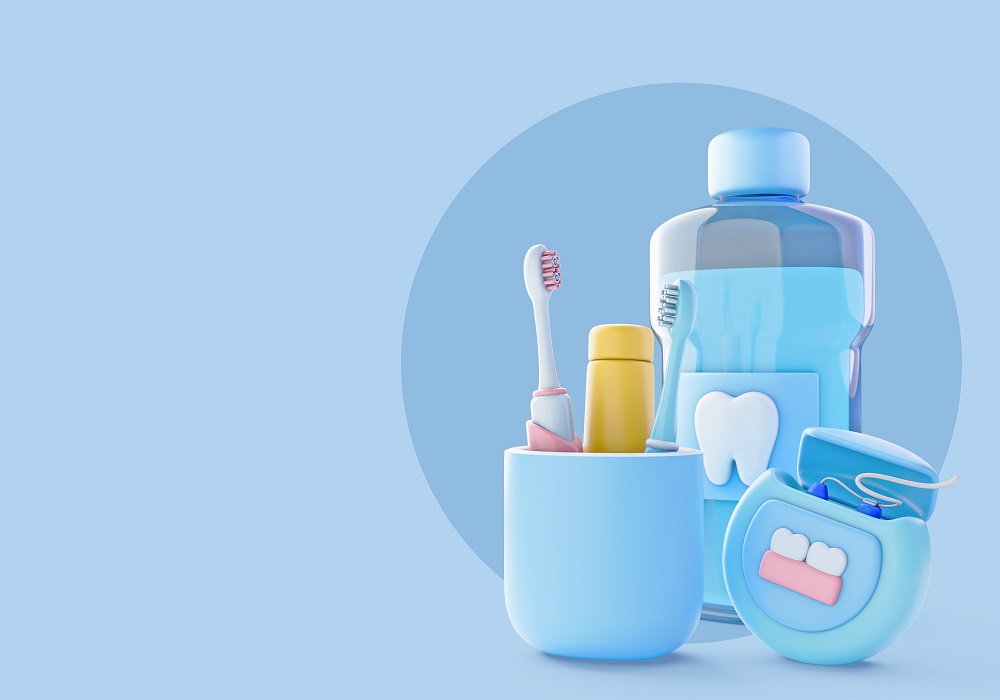What is a full dental cleaning?
A full dental cleaning, also known as a dental prophylaxis or oral prophylaxis, is a comprehensive dental procedure performed by a dental hygienist or dentist to clean and maintain the health of your teeth and gums. It involves several important steps to remove plaque, tartar, and stains from your teeth and to assess the overall health of your oral cavity.
Speak with your dentist if you have any dental phobias or worries. For your comfort and relaxation during your appointment, several providers provide sedation dentistry treatments.
Types of dental cleanings
Depending on your demands, there are numerous sorts of dental cleanings. But they all aim to eliminate dangerous bacteria and lower your risk of developing tooth problems.
- Prophylaxis. For those whose teeth and gums are generally in good health, this cleaning is routine and preventive. The most typical kind of dental cleaning is this one. Prophylaxis is the primary topic of this essay.
- Debridement in excess. A gross debridement can be helpful for people who haven't seen a dentist in over a year or who have significant plaque accumulation. It may take longer, but it is comparable to a standard prophylactic. Debridement's primary goal is to identify any problems that weren't first identified during the dental cleaning.
- root planning and scaling. Scaling and root planing, also referred to as a deep dental cleaning, goes well below the gum line to remove germs and calcium tartar (calculus) that has hardened around the roots of your teeth. This technique is only performed on patients who have mild to moderate periodontitis (gum disease). Scaling and root planing patients receive local anaesthesia to make their gums feel uncomfortable.
What is involved in a cleaning at the dentist?
A cleaning at the dentist typically involves a series of steps to remove plaque, tartar, and stains from your teeth, and to assess the overall health of your mouth. Here's what is generally involved in a cleaning at the dentist:
- Oral Examination: Before the cleaning, the dentist or dental hygienist will conduct an oral examination. They will visually inspect your mouth, gums, and teeth, looking for any signs of dental issues such as cavities, gum disease, oral cancer, or other abnormalities.
- Plaque and Tartar Removal: The dental professional will use a dental instrument called a scaler to carefully remove plaque and tartar from the surfaces of your teeth. Plaque is a sticky film of bacteria that forms on teeth and can lead to cavities and gum disease if not removed regularly. Tartar, or calculus, is hardened plaque that cannot be removed by brushing and flossing alone.
- Cleaning and Polishing: After removing the plaque and tartar, the teeth are polished using a special dental paste and a high-powered electric brush or a hand tool. This process helps to remove surface stains, making your teeth appear brighter and smoother.
- Flossing: The dental professional will floss between your teeth and along the gumline to remove any remaining debris and plaque that might be present in areas that are difficult to reach with a toothbrush.
- Fluoride Treatment (Optional): Some dental offices offer a fluoride treatment after cleaning. Fluoride helps to strengthen tooth enamel and provides additional protection against cavities.
- X-rays (if required): Your dentist may use X-rays to gain a more thorough image of your teeth and find any concealed problems, depending on your dental history and condition.
- Oral hygiene advice: The dentist will provide specific oral hygiene advice at various points during the cleaning procedure. They will give you tips on how to brush and floss properly and recommend any dental items that can be useful for your particular need.
- The dentist may also perform a comprehensive inspection of your mouth after the cleaning is finished in specific circumstances. They will go over the results of the cleaning and any X-rays that were taken, if any, and talk about any dental problems or suggested treatments.
What are the advantages of regular dental cleanings?
Regular dental cleanings have a lot of advantages, such as:
reduced likelihood of developing significant dental problems like cavities and gum disease.
- enhanced overall health. Healthcare professionals have been aware of the connection between oral health and overall health for a long time. Your chances of developing heart disease, stroke, and dementia can be decreased with regular dental cleanings.
- prevention of bad breath. Bad breath can be brought on by tartar and hardened plaque. By removing dangerous bacteria (microorganisms that cause disease) from the surfaces of your teeth, routine cleanings can help prevent halitosis.
- decreased price. Dental cleanings and other preventive procedures aid in preventing problems before they arise. Long-term, this can save you a tonne of time, anxiety, and money.
Who needs more frequent dental cleanings?
Certain individuals may require more frequent dental cleanings based on their oral health needs and risk factors. The following groups of people typically benefit from more frequent dental cleanings:
- Individuals with Gum Disease (Periodontal Disease): Patients with gum disease, whether it's gingivitis (mild gum inflammation) or periodontitis (advanced gum disease), usually need more frequent cleanings to manage the condition effectively. This may involve scaling and root planing procedures, which go beyond regular cleanings to remove tartar and bacteria beneath the gumline.
- Smokers: Smoking can significantly increase the risk of gum disease and other oral health problems. Smokers may require more frequent cleanings to combat the adverse effects of tobacco on oral tissues.
- Diabetic Patients: Diabetes can affect gum health, making diabetic individuals more susceptible to gum disease. More frequent cleanings can help control oral health issues related to diabetes.
- Pregnant Women: Hormonal changes during pregnancy can lead to an increased risk of gum disease, commonly known as pregnancy gingivitis. Frequent cleanings can help manage this condition and maintain oral health during pregnancy.
FAQ
Dental cleanings are definitely worth it. Regular dental cleanings offer a wide range of benefits that contribute to your overall oral health and well-being. Here are some reasons why dental cleanings are worth it:
Preventing Dental Issues
Maintaining Healthy Gums
Early Detection of Dental Problems
Fresh Breath:
Teeth cleaning is not a permanent fixture. It depends on what you eat and how well you maintain the hygiene of your mouth in between. It is safe to have these treatments once every six months especially if you are a smoker or if you are someone who is addicted to caffeine



 Dental Checkup Services
Dental Checkup Services
 Our range of products
Our range of products
 Oral Care Blogs
Oral Care Blogs

Recent Comments